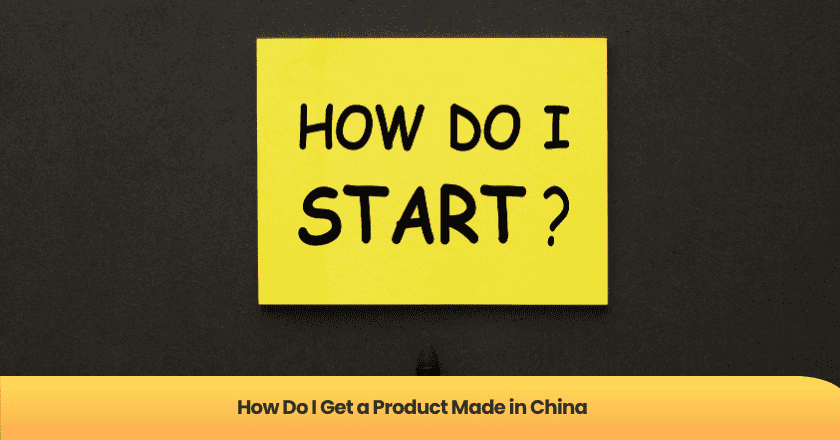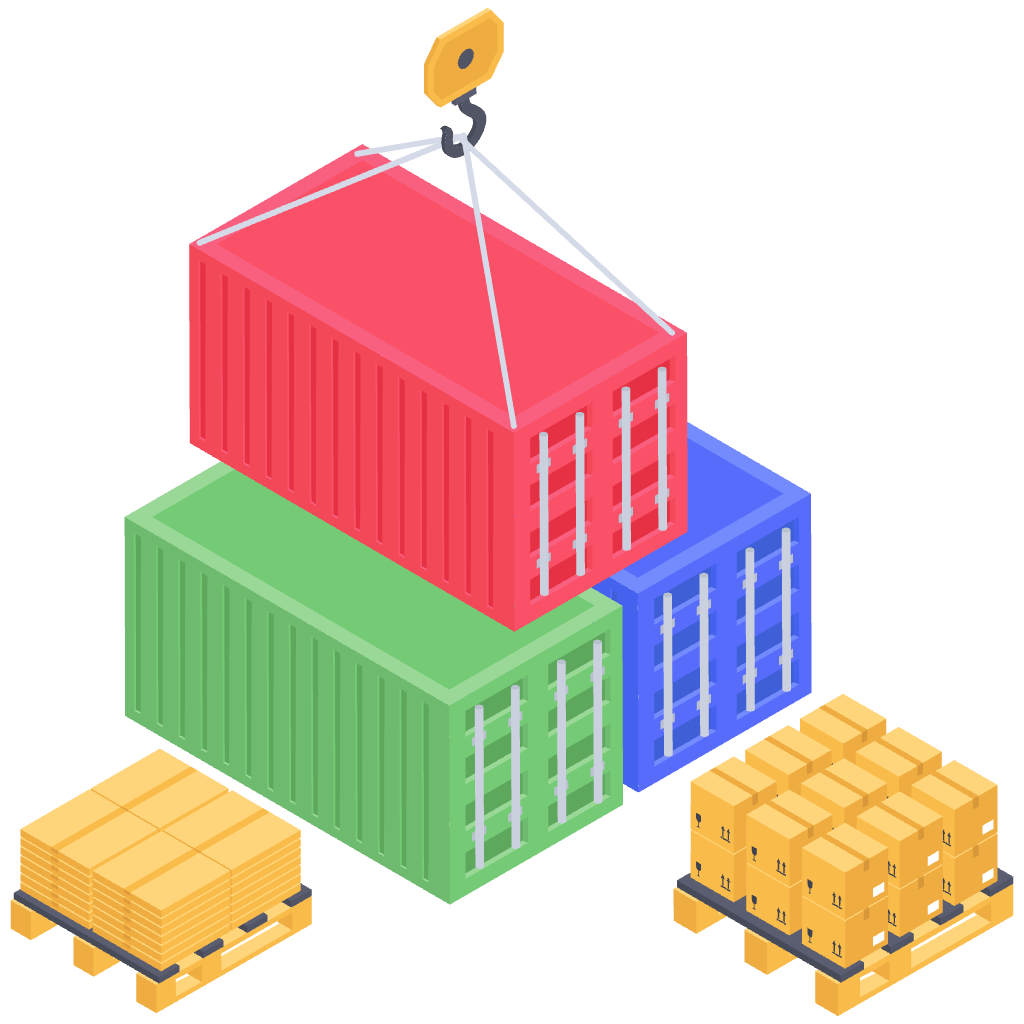
You want to get a product made in china. Here's how you do it: Start by defining exactly what your product should be. Choose a manufacturer in china who understands your needs. Share clear specifications so there's no confusion. Request samples to check quality. Once you approve, place your order and keep an eye on production. Arrange shipping and make sure your product meets all "made in china" requirements. Stay organized, communicate well, and you'll see your product delivered without headaches.
Key Takeaways
• Define your product idea clearly and write detailed specifications to avoid mistakes during production.
• Find the right manufacturer by using trusted sourcing platforms and checking their background carefully.
• Request samples from multiple suppliers to compare quality before placing a big order.
• Negotiate clear terms, place your order with a deposit, and oversee production to ensure your product meets expectations.
• Focus on quality control, safe payment methods, and proper shipping to get your product delivered smoothly.
Product Requirements
Before you start working with any manufacturer in China, you need to get clear on your product requirements. This step sets the foundation for everything that follows. If you skip it, you might end up with a product that doesn’t match your vision or your customers’ needs.
Define Your Idea
Start by getting your idea out of your head and onto paper. What problem does your product solve? Who will use it? Think about the main features and benefits. If you're still in the early stages, spend some time finding and validating your product idea. Ask friends, do some online research, or check out what’s already on the market. The more you know about your product's purpose, the easier the next steps will be.
Create Specifications
Now, get specific. Write down every detail about your product. This includes size, color, materials, weight, and any special functions. Don’t leave anything to guesswork. If you want your product to stand out, mention unique features or quality standards. Here's a quick checklist you can use:
• Dimensions (length, width, height)
• Material type
• Color options
• Packaging requirements
• Safety or compliance standards
Tip: The clearer your specifications, the less room there is for mistakes during production.
Prepare Drawings or Samples
Manufacturers in China work best when they can see exactly what you want. If you have a sketch, digital drawing, or even a sample of a similar product, share it. Visuals help avoid misunderstandings. You don't need to be an artist—simple drawings or reference photos work. If you already have a prototype, send it to the factory. This step makes sure your product matches your expectations.
By taking time to define your product requirements, you set yourself up for a smoother experience when you move on to choosing a manufacturer and starting production.
Find the Right Manufacturer in China
Finding the right factory in China can feel overwhelming at first. You have thousands of options, but not every factory will fit your needs. Let's break down how you can find the right manufacturer in China and make sure your product turns out just the way you want.
Use Sourcing Platforms
You don't need to fly to China to start your search. Sourcing platforms make it easy to connect with factories from anywhere in the world. Here are some popular options:
• Alibaba: Great for almost any product and order size. You can filter by verified supplier status and see reviews from other buyers.
• Global Sources: Focuses on higher-quality suppliers and often features factories that export to big brands.
• 1688.com: This platform is in Chinese and targets the local market. Prices are usually lower, but you may need a sourcing agent or translator.
• Made-in-China.com: Another solid choice for finding a wide range of factories.
Tip: Start by searching for your product on two or three platforms. Compare the results and see which factories stand out.
If you want to save time or avoid language barriers, you can use a sourcing agent. These professionals know the China market and can help you find the right factory faster. They also handle communication and negotiation, which can make your life much easier.
Check Supplier Background
Once you have a list of potential factories, you need to dig deeper. Not every supplier is trustworthy or experienced. Here's how you can check their background:
1. Business License: Ask for a copy of the factory's business license. Make sure the company name matches the one on the platform.
2. Years in Business: Factories with more experience usually offer better quality and reliability.
3. Export Experience: Some factories only sell in China. You want a supplier who understands international shipping and standards.
4. Certifications: Look for ISO, CE, or other certificates that match your product’s needs.
5. Customer Reviews: Read what other buyers say. If you see repeated complaints, move on to the next factory.
| 'What to Check | Why It Matters |
|---|---|
| Business License | Confirms legal status |
| Export Experience | Ensures smooth shipping |
| Certifications | Meets safety and quality needs |
| Customer Reviews | Reveals real buyer experiences |
Note: Never skip this step. A little research now can save you big headaches later.
Factory Audit
You want to make sure the factory can actually deliver what you need. A factory audit gives you a clear picture of their capabilities. Here’s what you can do:
• Request a Virtual Tour: Many factories in China offer video calls to show their production lines and equipment.
• Hire a Third-Party Inspector: Companies like SGS or Bureau Veritas can visit the factory and give you a detailed report.
• Ask for References: A reliable supplier will share contacts from past clients.
A factory audit checks for:
Production capacity
Quality control systems
Cleanliness and safety
Employee working conditions
Choosing the right factory is the most important step in the made in china process. Take your time, ask questions, and don't settle for less than the best.
Request Quotes and Samples
Once you have a shortlist of factories, it's time to reach out and see what they can offer. This step helps you compare options and make sure you get the best deal for your product.
Contact Multiple Suppliers
Don't just message one factory. You want to contact at least five suppliers. This gives you a better sense of the market and helps you spot any red flags. When you reach out, introduce yourself and share your product specifications. Ask clear questions about their experience with similar products. If you want to speed things up, prepare a simple message template. Here's an example:
Hi, I'm interested in your [product name]. Can you share your best price, minimum order quantity, and lead time? I'd also like to know if you can help with getting samples made. Thank you! Tip: Keep your messages short and direct. Suppliers get lots of requests every day.
Compare Prices and MOQs
After you get replies, start comparing the offers. Look at the price per unit, but also check the minimum order quantity (MOQ). Some factories want big orders, while others accept small batches. Make a table to keep track:
| Supplier | Price per Unit | MOQ | Lead Time |
|---|---|---|---|
| Factory A | $2.50 | 500 | 20 days |
| Factory B | $2.30 | 1000 | 25 days |
Don't just pick the cheapest option. Think about quality, communication, and flexibility. Sometimes, paying a little more means fewer problems later.
Review Samples
Before you place a big order, always ask for samples. This is your chance to check the product in real life. Hold it, test it, and see if it matches your expectations. If you notice any issues, talk to the supplier and ask for changes. Getting samples made is a small investment that can save you from costly mistakes.
Note: If a supplier refuses to send samples, consider it a warning sign. Reliable factories want you to feel confident about your order.
Manufacture a Product in China
Getting a product manufactured in China takes more than just picking a factory. You need to set clear terms, place your order, and keep an eye on production. Let's walk through how to manufacture in China step by step.
Negotiate Terms
Once you choose your factory, start negotiating. You want to agree on price, payment schedule, lead time, and packaging. Ask about warranty and after-sales support. Factories in China expect you to negotiate, so don't accept the first offer. Use a table to keep track of what each factory promises:
| Factory Name | Price | Lead Time | Payment Terms | Packaging |
|---|---|---|---|---|
| Factory A | $2.50 | 20 days | 30/70 | Custom |
| Factory B | $2.30 | 25 days | 50/50 | Standard |
Tip: Always get everything in writing. Clear terms protect you if problems come up later.
Place Order
After you agree on terms, place your order with the factory. Most factories in China ask for a deposit before they start. You'll usually pay 30% upfront and the rest after production. Double-check your contract. Make sure it lists all product specs, quantities, and deadlines. Ask the factory to confirm the order and share a production timeline.
• Send your purchase order and confirm details.
• Pay the deposit using a safe method like PayPal or bank transfer.
• Ask for a production schedule.
Oversee Production
You can't just sit back and wait. You need to oversee the process to make sure the factory follows your specs. Request regular updates and photos from the factory. If you can, hire a third-party inspector to check quality before shipping. Many buyers use sourcing agents in China to manage this step.
If you stay involved, you’ll catch problems early and avoid surprises. That's how you manufacture a product in China with confidence.
Quality, Payment, and Shipping
Manufacturing a Product in China: Quality Control
You want a quality product on time, so you need to focus on quality control from the start. When manufacturing a product in China, don't just trust that everything will go smoothly. Ask your supplier about their quality control process. Request photos or videos during production. You can also hire a third-party inspection company in China to check your products before shipping. This step helps you catch problems early and avoid surprises when importing from China.
Here's a simple checklist for quality control:
• Approve pre-production samples
• Request in-process updates
• Arrange final inspection before shipment
• Review inspection reports
Tip: Consistent quality checks help you build a strong reputation for your brand.
Payment Methods
Paying your supplier safely is just as important as getting a good price. Most factories in China accept bank transfers (T/T), PayPal, or even Alibaba's secure payment system. For large orders, you might use a letter of credit. Always start with a small deposit, usually 30%, and pay the balance after you confirm the quality. Never send full payment before you see the finished product.
| Payment Method | Safety Level | Common Use |
|---|---|---|
| Bank Transfer | Medium | Most orders |
| PayPal | High | Samples, small qty |
| Alibaba Escrow | High | Online orders |
| Letter of Credit | Very High | Large shipments |
Note: Clear payment terms protect you and your supplier.
Shipping and "Made in China" Labeling
After you approve the quality, it's time to ship your product. You can choose air or sea freight, depending on your budget and timeline. Make sure your product has the correct "made in china" label. This is required by most countries when importing from China. Work with your supplier or a freight forwarder to handle customs paperwork and logistics. Understanding these steps helps you avoid delays and extra costs.
If you want less stress, consider using a sourcing agent. They can manage quality control, payment, and shipping for you, making manufacturing products in China much easier.
Ready to take your next steps towards manufacturing in china? Here’s a quick checklist to guide you:
1. Define your idea and create clear specs.
2. Find and vet factories in china.
3. Request samples and check quality.
4. Oversee production and arrange shipping.
Stay patient as you move through the made in china process. Start small, learn as you go, and keep your focus on launching your product. Your next steps towards manufacturing in china can open new doors for your business!
FAQ
How long does it take to get a product made in China?
Production time depends on your product and the factory's schedule. Most orders take 20–45 days after you approve samples. Shipping adds extra time. Always ask your supplier for a timeline.
Do I need to visit China to work with a manufacturer?
You don't need to travel. You can handle everything online—finding suppliers, checking samples, and managing production. Many buyers use sourcing agents or third-party inspectors for extra peace of mind.
What if I don’t speak Chinese?
Most factories have English-speaking staff. You can use translation tools for messages. If you want smoother communication, consider hiring a sourcing agent who speaks both languages.
How can I make sure my product is high quality?
Ask for samples before you order. Request photos or videos during production. Hire a third-party inspection company to check your products before shipping. Quality control helps you avoid surprises.
Get Started Today
Let's Turn Your Sourcing Goals into RealityWeChat:+86 15157124615
WhatsApp:+86 15157124615
Address:Building 10 #39 Xiangyuan Road, Hangzhou, China




